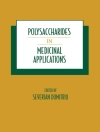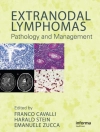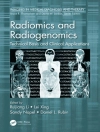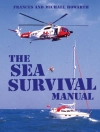The skin is the first line of defense against chemical warfare agents including nerve agents and toxic industrial chemicals, providing a possible barrier or delay to systemic distribution. However, some chemicals act directly on the skin including vesicants sulfur mustard and corrosive compounds such as strong acids or bases, and do not have to gain access to systemic circulation to cause extensive skin damage. Early and rapid skin decontamination is extremely important following exposure to chemical warfare agents and toxic industrial chemicals because it decreases serious skin damage to the patient and, potentially, their doctor.
This multi-authored international text pulls together a century of decontamination research and helps the reader expedite solutions that will decrease morbidity and mortality. Complete with dozens of hiqh quality photographs and illustrations, Skin Decontamination aids industrial hygiene, dermatology, occupational physicians and thoseinvolved in the public health arena.
Tabla de materias
Chapter 1. Isolated Human and Animal Stratum Corneum As a Partial Model for the 15 Steps of Percutaneous Absorption: Emphasizing Decontamination, Part I.- Chapter 2. Isolated Human And Animal Stratum Corneum As A Partial Model For The 15 Steps Of Percutaneous Absorption: Emphasizing Decontamination Part II.- Chapter 3. Recent Knowledge: Human/Animal Skin Decontamination.- Chapter 4. The Decontamination of Chemically Contaminated Remains.- Chapter 5. Effectiveness of Chemical, Biological, Radiological, and Nuclear (CBRN) Skin Decontaminants: Towards Tests Standardization.- Chapter 6. Effects of Soap-Water Wash on Human Epidermal Penetration.- Chapter 7. Fuller’s Earth: Old and Faithful Skin Decontaminant Against Toxic Agents.- Chapter 8. Comparison of Four Different Fuller’s Earth Formulations in Skin Decontamination.- Chapter 9. The Mass Decontamination Paradigm: Response Relating to Gas Phase Exposures and Skin Decontamination.- Chapter10. Binding Affinity and Decontamination of Dermal Decontamination Gel (DDGel) to Model Chemical Warfare Agent (CWA) Simulants.- Chapter 11. Dermostyx (IB1): High-efficacy and Safe Topical Skin Protectant Against Percutaneous Toxic Agents.- Chapter 12. Understanding the Impact of Responder Management Strategies on Public Experiences and Behaviour During Mass Decontamination.
Sobre el autor
Hanjiang Zhu, Ph D
University of California San Francisco, Dermatology
Department of Dermatology
2340 Sutter Street N461
San Francisco, CA 94143/0989
USA
Tel: 408-829-3797
Fax: 415-753-5304
[email protected]
Howard I. Maibach, MD
Professor, Dermatologist University of California San Francisco
Department of Dermatology
2340 Sutter Street N461
San Francisco, CA 94143/0989
USA
Tel: (415)673-9693
Fax: (415) 673-3533












